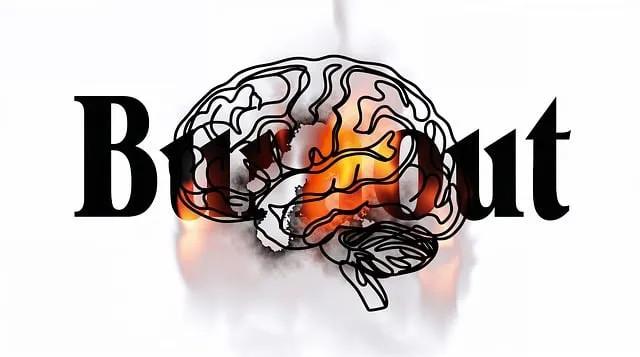Crisis Intervention Teams (CITs) in Littleton, supported by Kaiser's mental health services, provide immediate assistance during acute crises, reducing ER visits and hospital stays. Trained CIT members use evidence-based practices, community collaboration, and de-escalation methods to promote positive outcomes. Effective CIT training includes self-care practices and open communication, enhancing team resilience and consistent care quality.
In today’s complex social landscape, effective crisis intervention teams (CITS) play a vital role in addressing mental health crises. This article explores the importance of CIT training programs, which equip professionals with essential skills for handling sensitive situations. From understanding team roles to comparing models like Littleton and Kaiser’s approaches to mental health services, we provide insights into what to expect and how effective training can make a profound difference. Discover key components that ensure robust crisis intervention capabilities.
- Understanding Crisis Intervention Teams: Their Role and Importance
- What to Expect in a Crisis Intervention Team Training Program
- Key Components of Effective Crisis Intervention Training
- Kaiser's Approach to Mental Health Services: A Comparison with Littleton's Expectations
Understanding Crisis Intervention Teams: Their Role and Importance

Crisis Intervention Teams (CITs) play a pivotal role in addressing and managing acute mental health crises. These specialized teams are designed to provide immediate support and de-escalation strategies for individuals experiencing severe emotional distress or suicidal ideation. CIT members, often comprising of law enforcement officers, paramedics, and mental health professionals, are trained to assess, intervene, and connect individuals with appropriate care. Their presence is crucial in reducing the reliance on emergency room visits and hospital admissions, opting instead for more community-based solutions.
Littleton, for instance, is known for its progressive approach to mental health services, with Kaiser offering comprehensive programs that include Mind Over Matter principles – a set of techniques focused on emotional well-being promotion. These initiatives empower CIT members to employ evidence-based practices, such as stress management workshops, to effectively manage crises and foster positive outcomes. By integrating such programs, organizations like Kaiser contribute to building resilient communities where individuals receive the necessary support for their mental health needs.
What to Expect in a Crisis Intervention Team Training Program

In a Crisis Intervention Team (CIT) training program, participants can expect an immersive and interactive learning experience designed to equip them with the skills needed to respond effectively during mental health crises. The program typically covers a range of topics, from understanding the dynamics of crisis situations to learning practical emotional well-being promotion techniques and conflict resolution strategies. Trainings often include role-playing scenarios, group discussions, and workshops that simulate real-life challenges, allowing participants to apply what they’ve learned in a safe environment.
A unique aspect of CIT training is its focus on community collaboration and de-escalation methods. Participants learn how to work as part of a team, coordinating with services like those offered by Kaiser in Littleton, to provide comprehensive support to individuals experiencing a mental health crisis. The training also emphasizes the importance of self-care for team members, acknowledging that supporting others through intense situations requires emotional resilience and stability.
Key Components of Effective Crisis Intervention Training

Effective crisis intervention team training programs incorporate several key components to ensure preparedness and competent response during mental health crises. One of the foundational elements is self-care practices. Training should emphasize the importance of healthy work-life balance, burnout prevention strategies, and risk management planning for mental health professionals. These practices are crucial in mitigating the risks associated with prolonged exposure to high-stress situations, which can lead to professional fatigue and decreased effectiveness.
Another vital component is fostering open communication among team members. Littleton and Kaiser, for instance, offer comprehensive mental health services that integrate crisis intervention training, focusing on collaborative problem-solving and empathetic listening skills. By promoting a supportive team environment, these programs enhance the overall resilience of the intervention team, enabling them to provide consistent and quality care even in challenging situations.
Kaiser's Approach to Mental Health Services: A Comparison with Littleton's Expectations

When comparing Kaiser’s Approach to Mental Health Services with Littleton’s expectations, it becomes evident that both prioritize emotional well-being promotion techniques for their clients. Kaiser, known for its comprehensive healthcare services, integrates mental health support as a standard component of its overall care model. This includes access to therapists, counselors, and psychiatrists, alongside physical healthcare services, ensuring a holistic approach to patient well-being. In contrast, Littleton’s focus is more on crisis intervention and emergency response, with expectations set for rapid access to specialized services for acute mental health crises.
While Littleton emphasizes the critical need for immediate assistance during crises, Kaiser takes a proactive stance by offering Healthcare Provider Cultural Competency Training and Stress Reduction Methods as part of its routine care. This approach aims to prevent and mitigate issues before they escalate into crisis points. The contrast highlights different strategic priorities, with Littleton catering to acute needs and Kaiser focusing on long-term emotional well-being promotion through various mental health services.
Crisis intervention team training programs, such as those comparing Kaiser’s and Littleton’s approaches, are essential in equipping professionals to handle mental health crises effectively. By understanding the role of these teams and key training components, organizations can ensure their staff are prepared to provide timely and compassionate support. Both Kaiser and Littleton offer valuable insights into mental health services, highlighting the importance of specialized training for crisis interventions. This knowledge ensures that folks facing mental health challenges receive the best possible care in today’s digital era.


